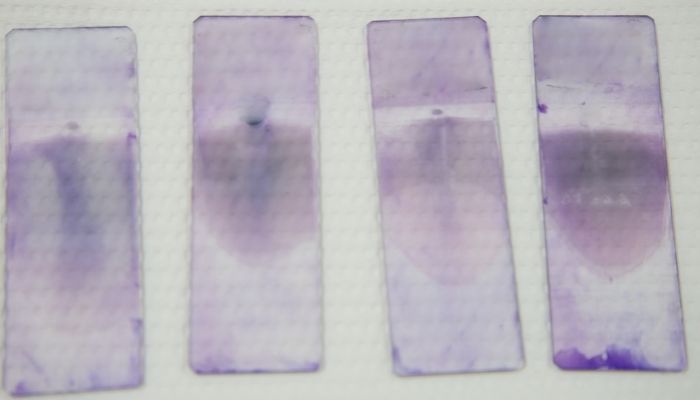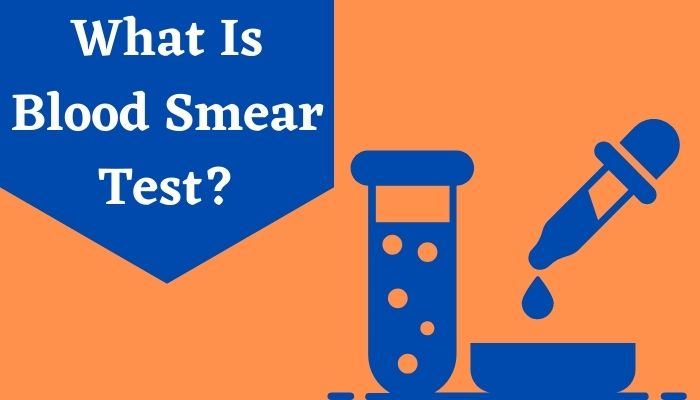A blood smear test is performed to check for abnormalities in various blood cells. The blood smear test embraces customers with information on the number and shape of these cells. Thus, based on this peripheral blood smear test, your doctor can diagnose certain blood disorders and abnormalities. In this smear test, your blood sample is tested on a specially treated slide. An expert healthcare professional examines the slide under a microscope and checks the size, shape, and number of different types of blood cells. These cells could be:
- Red Blood Cells: They carry oxygen from your lungs to the rest of your body
- White Blood Cells: prevent infection
- Platelets: help your blood clot

The cost of the blood smear test is Rs. 220 to Rs.450, depending on your location and place.
Please check the price of the blood smear test in Delhi/NCR, your nearby centers and other details.
Summary of Blood Smear Test
| Also known as | peripheral smear, peripheral blood film, smear, blood film, manual differential, differential slide, blood cell morphology, blood smear analysis |
| Test Type | Blood |
| Blood smear test includes | To check blood disorders |
| Preparation | You may not need any special preparations. |
| Reporting | Within 24 hours |
| Test price | The cost of the blood smear test is Rs. 220 to Rs.450, depending on your location and place. |
| Also included in | Health Insurance Plans |
| Related tests | CBC |
Purpose Of Blood Smear Test
Your doctor may refer to this test if you have abnormal results on a complete blood count (CBC). A CBC test measures various parts of your blood. Your doctor may suggest this test if you have symptoms of a blood disorder. These symptoms could be,- Fatigue
- Jaundice (a healthcare condition where your skin and eyes turn yellow)
- Abnormal bruise
- Unexplained weight loss
- Skin rashes or cuts
- Bone pain
- Severe infection
- Unexplained anemia
Preparation for the Blood Smear Test
You may not require any special preparation for this blood smear test. But if your doctor suggests other blood tests, you may need to fast for several hours before the test. Your doctor will guide you regarding the special instructions for the test.The Blood Film Test Procedure
- Once you reach the lab, an experienced nurse or technician will check your arms to get easy access to your vein.
- After the identification of the vein, he will clean and disinfect the area by using an antiseptic
- He will insert a needle into your vein to collect your blood sample
- A small amount of blood will be collected into a test tube
- When the sample collection will be finished, he will remove the needle and place a bandage over the site.
- The entire procedure gets completed within five minutes.
The Interpretation of Blood Smear Test Results
You may get the results on the same day or the next day. The results will reveal whether your blood cells look normal or abnormal. You will receive separate results for red blood cells, white blood cells, and platelets.If your red blood cell results are not normal, it may indicate
- Anemia
- Sickle-cell Anemia
- Hemolytic anemia (a type of anemia where red blood cells are destroyed before they can be replaced, as a result, your body may not have adequate healthy red blood cells)
- Thalassemia
- Bone marrow disorders
- Infection
- Allergies
- Leukemia
Thrombocytopenia (a healthcare condition where your blood has a lower than the normal number of platelets)
Talk to your health care provider to learn more about your results.


